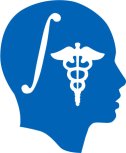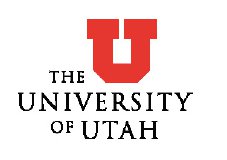Difference between revisions of "2013 ISMRM CardiacStudyGroup CARMA"
| (One intermediate revision by the same user not shown) | |||
| Line 8: | Line 8: | ||
== About the Workshop == | == About the Workshop == | ||
| − | The demo session will be held as part of the [http://www.ismrm.org/13/ The International Society for Magnetic Resonance in Medicine (ISMRM) Annual Meeting ]. The goal is to provide participants with an overview of the software available for segmentation and postprocessing of cardiac LGE-MRI, specifically for the study of cardiac tissue in the left atrium. The session will include a brief presentation on the imaging itself, followed by considerations for image processing and a tutorial using the CARMA DBP Slicer Extension modules to segment and process LGE-MRI. | + | The Slicer demo session will be held as part of the Cardiac Study Group meeting at the [http://www.ismrm.org/13/ The International Society for Magnetic Resonance in Medicine (ISMRM) Annual Meeting ]. The goal is to provide participants with an overview of the software available for segmentation and postprocessing of cardiac LGE-MRI, specifically for the study of cardiac tissue in the left atrium. The session will include a brief presentation on the imaging itself, followed by considerations for image processing and a tutorial using the CARMA DBP Slicer Extension modules to segment and process LGE-MRI. |
*'''About Slicer and the National Alliance for Medical Image Computing''': Over the past eight years, the National Alliance for Medical Image Computing (NA-MIC), one of the seven National Centers for Biomedical Computing (NCBC), part of the NIH Roadmap for medical research, has focused its efforts on the transfer of the latest advances in biomedical image analysis to the clinical and scientific community, through the development and dissemination of open source tools. As part of the NA-MIC toolkit, the [http://www.slicer.org/ 3D Slicer] open-source software has been developed as a technology delivery platform that is both easy to use for clinical researchers, and easy to extend for software developers. | *'''About Slicer and the National Alliance for Medical Image Computing''': Over the past eight years, the National Alliance for Medical Image Computing (NA-MIC), one of the seven National Centers for Biomedical Computing (NCBC), part of the NIH Roadmap for medical research, has focused its efforts on the transfer of the latest advances in biomedical image analysis to the clinical and scientific community, through the development and dissemination of open source tools. As part of the NA-MIC toolkit, the [http://www.slicer.org/ 3D Slicer] open-source software has been developed as a technology delivery platform that is both easy to use for clinical researchers, and easy to extend for software developers. | ||
| Line 15: | Line 15: | ||
*'''About UCAIR''': UCAIR, or the Utah Center for Advanced Imaging Research, is the research division of the Department of Radiology at the University of Utah. We are a group of medical physicists, engineers, radiologists, students, associates and fellows all working to design and develop better imaging devices, technology and applications. The Center provides the expertise and the infrastructure of a world-class imaging resource for the campus and the nation. Many of our research projects are collaborative and multidisciplinary because imaging technology is a powerful tool for both medical and biological research. | *'''About UCAIR''': UCAIR, or the Utah Center for Advanced Imaging Research, is the research division of the Department of Radiology at the University of Utah. We are a group of medical physicists, engineers, radiologists, students, associates and fellows all working to design and develop better imaging devices, technology and applications. The Center provides the expertise and the infrastructure of a world-class imaging resource for the campus and the nation. Many of our research projects are collaborative and multidisciplinary because imaging technology is a powerful tool for both medical and biological research. | ||
| − | |||
== Dates and Location: == | == Dates and Location: == | ||
Latest revision as of 22:07, 10 April 2013
Home < 2013 ISMRM CardiacStudyGroup CARMA
| ||

|

|

|
Contents
About the Workshop
The Slicer demo session will be held as part of the Cardiac Study Group meeting at the The International Society for Magnetic Resonance in Medicine (ISMRM) Annual Meeting . The goal is to provide participants with an overview of the software available for segmentation and postprocessing of cardiac LGE-MRI, specifically for the study of cardiac tissue in the left atrium. The session will include a brief presentation on the imaging itself, followed by considerations for image processing and a tutorial using the CARMA DBP Slicer Extension modules to segment and process LGE-MRI.
- About Slicer and the National Alliance for Medical Image Computing: Over the past eight years, the National Alliance for Medical Image Computing (NA-MIC), one of the seven National Centers for Biomedical Computing (NCBC), part of the NIH Roadmap for medical research, has focused its efforts on the transfer of the latest advances in biomedical image analysis to the clinical and scientific community, through the development and dissemination of open source tools. As part of the NA-MIC toolkit, the 3D Slicer open-source software has been developed as a technology delivery platform that is both easy to use for clinical researchers, and easy to extend for software developers.
- About CARMA: The mission of the Comprehensive Arrhythmia Research & Management Center is to provide worldwide pioneering leadership in advancing research and clinical treatments for cardiac arrhythmias, particularly atrial fibrillation, a disease that causes both short and long term impairment in the quality of life for millions worldwide. The CARMA Center is advancing research to better understand this disease and develop new medical techniques and interventions that greatly improve the lives of patients.
- About UCAIR: UCAIR, or the Utah Center for Advanced Imaging Research, is the research division of the Department of Radiology at the University of Utah. We are a group of medical physicists, engineers, radiologists, students, associates and fellows all working to design and develop better imaging devices, technology and applications. The Center provides the expertise and the infrastructure of a world-class imaging resource for the campus and the nation. Many of our research projects are collaborative and multidisciplinary because imaging technology is a powerful tool for both medical and biological research.
Dates and Location:
- Date: April 22, 2013
- Location: Salt Lake City, Utah
Training Faculty and Organizers
This workshop is a joint event of the Utah Center for Advanced Imaging Research (UCAIR) and the Comprehensive Arrhythmia Research and Management (CARMA) Center at the University of Utah.
UCAIR
- Ed DiBella, Ph.D., UCAIR, University of Utah, Salt Lake City, USA
- Eugene Kholmovski, Ph.D., UCAIR, University of Utah, Salt Lake City, USA
CARMA
- Joshua Cates, Ph.D., CARMA and SCI Institute, University of Utah, Salt Lake City, USA
- Rob MacLeod, Ph.D., CARMA and SCI Institute, University of Utah, Salt Lake City, USA
- Salma Bengali, CARMA, University of Utah, Salt Lake City, USA
- Nathan Burgon, CARMA, University of Utah, Salt Lake City, USA
ISMRM 2013 Cardiac Working Group Meeting
At the Salt Palace, Salt Lake City, Utah
- 16:30 - Welcome, admin/business issues
- 16:40 - 20 minute slide presentation on LA LGE postprocessing. Speakers Eugene Kholmovski and Josh Cates.
- 17:00 - Live demonstrations of LA Segmentation and Postprocessing using 3D Slicer and other tools
- 17:40 - Refreshment break
- 17:50 - 20 minute slide presentation on technical details of processing 4D flow datasets. Speaker Michael Markl.
- 18:10 - Live demonstrations of 4D flow processing.
- 18:30 - Meeting ends. Informal discussion afterwards
Registration
To sign-up for the workshop, please visit the ISMRM 2013 website.
Preparation for the Workshop
No preparation is necessary for this workshop.
Back to NA-MIC Events